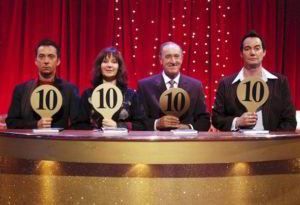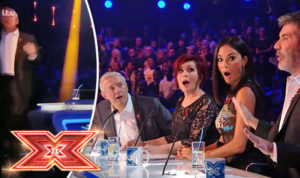This is a fun and easy exercise to introduce the idea of having a healthy attitude to writing competitions.

Some of the young writers I work with love entering competitions. Some are currently working on submissions to the Irish Times, and a couple were included in an anthology put together by Fighting Words Belfast which is launching tonight.
If I come across a competition I usually do mention it to my young writers in case they’re interested, but I also do this exercise with them, because it’s a bit of fun and it gives a really good insight into how competitions work.
I don’t make writing competitions a big feature at our writing group because I don’t want anyone to think that the point of writing is to enter competitions, or that it matters what anyone else thinks of your writing. But competitions for young writers are out there and some writers do get a lot out of them.
My whole writing career started with a competition, in fact. It changed my life and, most importantly, gave me the huge confidence boost I needed at that point. Competitions can be great because:
- They motivate you to finish, edit and polish your work
- They provide something to aim for
- A shortlisting or win can be a real encouragement

But since winning is unlikely, they can also be demoralising and discouraging (I’ve been there too). So I’d say do let your young writers know about competitions if you feel they’d enjoy them, but don’t pressure them to enter. Make sure you stress that writing for your own enjoyment, or to share with your friends is as valid as writing to be published.
And do this exercise with them:
Exercise
The BBC Young Writers Award is run every year. Five stories are shortlisted, recorded and broadcast on the radio, then a winner is chosen. After the 2017 competition ended I downloaded the shortlisted stories, printed them out and gave them to my writing group, telling them they had to pretend they were the competition judges. They had to read the five stories and choose their favourites, but they then had to come to a consensus as a group about the overall winner. Only one could win.

Of course, they found it really difficult to come to an agreement. When they’d finally made their choice, I told them who the actual winner chosen by the BBC had been (and it wasn’t the one they’d chosen).

The point of this was just to show them that:
- Competition judging is hugely subjective. On another day, with another judge, a different story would have won
- It’s really hard to pick your favourite and even harder to agree on one as a group
- The stories that didn’t win were often favourites with at least one of the judges
- Sometimes the story that wins is just the story everyone can agree is good rather than the story someone really really loves
Which is why they should regard competitions as a bit of fun and never take it personally if their story isn’t chosen.
I found the kids really enjoyed this exercise (especially arguing about it!). It’s also good because they get to read examples of writing by kids their own age, which they always find interesting, and it encouraged them to identify and discuss what they liked about each story, which is bound to feed into their own writing.
You could do this with the shortlist from any of the BBC competitions by listening to the radio broadcasts with your group (be careful not to reveal the winner in advance!) or you can download this printed version which I took from the BBC site at the time of the 2017 shortlist – BBC Young Writers shortlisters
Obviously you can do this with any competition that puts their shortlist online.
I’ve also put together a list of competitions your young writers might be interested in:
The National Flash Fiction Youth Competition is for 360 word stories by 15-19 year olds
Chronicles runs regular Sci-Fi and Fantasy Flash Fiction Competitions including the popular ’75 word challenge’ and the new ‘300 word challenge’
Radio 2’s short story-writing competition for kids up to 13
The Wicked Young Writer Awards for 5-25 year olds are judged by Cressida Cowell and open until March 2, 2020. They also have a Non-Fiction award encouraging 11-25-year olds to write essays or articles “that recognise the positive impact that people can have on each other, their communities and the world we live in.”
The Young Walter Scott Prize is for historical fiction writers aged 11-19
Fighting Words will publish a magazine of new writing with the Irish Times next year and invites submissions from Secondary School Students. Deadline 6th December. PDF download – Call for Submissions_ITSupplement
The Betjeman Poetry Prize is for poets aged 10-13
Wild About Writing is for short stories by kids up to 13 years old, inspired by the natural environment
The Author of Tomorrow is designed to find the adventure writers of the future. Up to age 21
The Voices Competition is for young people in care and the theme for 2020 is ‘Dreams’
The School Reading List have put together an even longer list of competitions for kids
If you know of any others let me know and I’ll add them to the list!
Thanks to Stéphanie Brown for suggesting these:
Waterways Story making Festival in Belfast
https://www.facebook.com/waterwaysstorymakingfestival/
Foyle Young Poet of the Year
https://foyleyoungpoets.org/
Stéphanie Brown says:
Waterways Story making Festival in Belfast
https://www.facebook.com/waterwaysstorymakingfestival/
Foyle Young Poet of the Year
https://foyleyoungpoets.org/
Kelly McCaughrain says:
Brilliant, Stéphanie, I’ve added them to the post! Thank you!